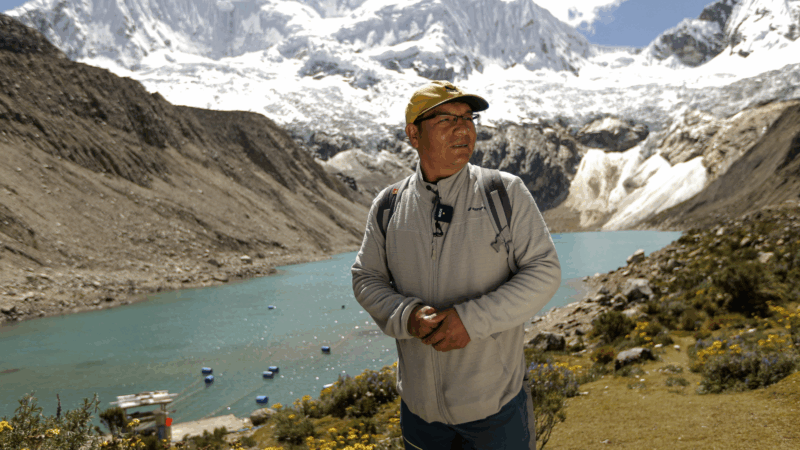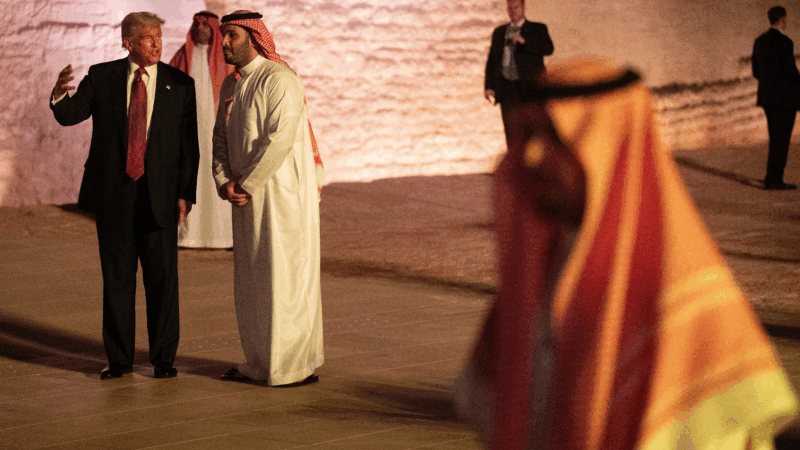European leaders scramble ahead of Trump’s Ukraine summit with Putin
PARIS — As U.S. and Russian envoys prepare to begin talks in Saudi Arabia on ending the war in Ukraine, European leaders have called an emergency meeting in Paris after being cut out of the peace negotiations.
The gulf between the U.S. and Europe on the Ukraine war and security issues crystallized for Europeans this past weekend at the Munich Security Conference, says Elie Tenenbaum, a security expert at the French Institute for International Relations.
“Their worst nightmare has come true,” he says. “They see that the Trump administration is going to bypass them and try to strong-arm Ukraine in negotiating a deal with Russia to end the war.”
Tenenbaum says European leaders were hopeful that the U.S. and Europe could work together under the new Trump administration. But comments last week in Europe by several U.S. officials — Secretary of Defense Pete Hegseth in Brussels, Vice President JD Vance and special Russia-Ukraine envoy General Keith Kellogg in Munich, and by President Trump himself after an hour-and-a-half call with Russian President Vladimir Putin, have poured cold water on any such hopes.
“The Europeans now realize they are standing alone,” he says.
Ukrainian President Volodymir Zelensky pleaded in Munich for Europe to join Ukraine in building a European fighting force “So that Europe’s future depends only on Europeans, and decisions about Europe are made in Europe,” he said to resounding applause.
“Zelensky is saying this is our moment — where we either stand up and fight or we give up and let the Russians and the Americans draw the lines,” says Tenenbaum.
Monday’s meeting hosted by French President Emmanuel Macron, will be joined by the leaders of Britain, Italy, Poland, Spain, the Netherlands and Denmark.
In an op-ed in British newspaper The Daily Telegraph, U.K. Prime Minister Kier Starmer wrote that he is ready to send troops to Ukraine to guarantee a peace deal.
At least three big European powers will need to step up to create a real guarantor force, says Tenenbaum.
“What you need is for the UK and Poland to be on board along with France. And ideally a fourth country which could be Germany or Italy,” he says.
Tenenbaum says Europeans will have to fight for a place at the negotiating table “to be enough of a troublemaker that the U.S. and Russia realize the process may derail if they’re kept out of the room.”
Tenenbaum will be looking to see if the Europeans are willing to take some risks and be bold enough to earn a seat at the table.
Peruvian farmer loses landmark climate case against German energy giant
A Peruvian farmer has lost a decade-long legal climate case against Germany energy giant RWE. Saúl Luciano Lliuya claimed the company's emissions had contributed to glacial melt threatening his Andean hometown.
GOP’s budget package proposes to cut benefits and raise fees for legal immigrants
The goal of the changes, which head to the Senate next week, is to save money and send a signal that Republicans are tough on immigration.
China is now the biggest debt collector in the developing world, report says
Developing countries owe billions to China, which threatens to undermine poverty reduction efforts and fuel instability, according to a new report from Australia's Lowy Institute.
After CDC cuts, doctors fear women will lose access to contraception research
A small team of researchers responsible for keeping clinicians up to date on contraception research has been cut. Doctors say they rely on the team's guidance when advising women about contraception.
Greetings from the Galápagos Islands, where the blue-footed booby shows its colors
Far-Flung Postcards is a weekly series in which NPR's international correspondents share snapshots of moments from their lives and work around the world.
Trump’s foreign policy: deals with allies over diplomacy with rivals
When President Trump talks about his foreign policy, he often frames it as a business deal. He says much less about conventional diplomacy, like ending the wars in Ukraine and Gaza.








